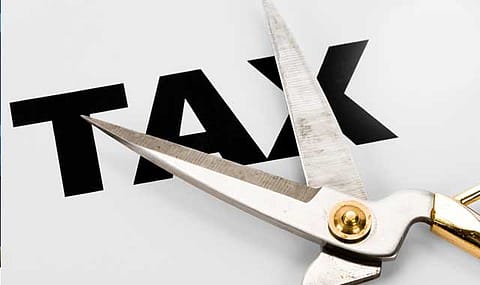Budget 2023: Tax relief needed amid high inflation, interest rates, say experts
Ahead of the Budget, experts are of the view that the exemptions and tax slabs in the personal income tax regime need a relook.

Tax proposals are the most eagerly awaited aspect of any budget. It is no different this time. With almost a decade having passed since the Centre last enhanced the personal income tax exemption limit from ₹2 lakh to ₹2.5 lakh in budget 2014-15, and the current limits and slabs now not keeping pace with the rise in inflation in the Indian economy, experts believe that tax tweaks may be needed in the upcoming budget.
Immediately after taking over the reins of the government after a landslide victory in the 2014 general elections, the Narendra Modi led National Democratic Alliance (NDA) government doled out an additional ₹50,000 exemption in the personal income tax slab for the individual tax payers, enhancing it to ₹2.5 lakh annually while the tax rates were left untouched.
Four years later, the government reintroduced the standard deduction of Rs 40,000 in 2018 for salaried taxpayers and later increased it to ₹50,000 annually in 2019. Also, individuals having taxable income of up to ₹5 lakh were given full rebate of tax. In 2020 – 21, a concessional tax regime was introduced with lower rates but very less exemptions in an effort to make the tax system less complicated. Tax payers, however, have not evinced much interest in the new regime.
Ahead of the Budget, experts are of the view that the exemptions and tax slabs in the personal income tax regime need a relook. Ved Jain, former president of the Institute of Chartered Accountants of India (ICAI) says both basic income tax slab and peak tax slab for individuals should be tweaked.
“Currently, the middle-class taxpayer is facing various challenges. Inflation has been eating away at their savings, back-to-back repo rate hikes by the central bank to fight inflation have increased the monthly EMIs for home loans and other loans, and higher fuel prices have impacted the household budget,” Jain said.
“It is time now that the income tax slab rates are tweaked to provide some relief. The basic income tax slab may be increased to ₹5 lakh and the highest slab should be tweaked to ₹20 lakh,” says Jain.
Aastha Dhowan, Partner, N.A. Shah – a professional services firm -- too is of the view personal income tax rates need to be brought down and exemption limit be enhanced. “In order to increase disposable income and revive the demand cycle, the government should reduce the rates of personal income tax and increase basic exemption limit by at least ₹1-2 lakhs considering the inflation over the years,” Dhowan tells Fortune India.
“With no new personal tax exemptions over the last several years, dividend and long term capital gains from listed shares, which in earlier years was tax free, being made taxable, GST being introduced on most of the items touching personal consumption with no set off available, high inflation in every aspect of livelihood like food, education, medical, housing market, and interest on loans among others, there is a need to have more disposable income in the hands of individuals,” Dhowan says.
Deloitte India Partner Aarti Raote says it is justified for the taxpayers to expect a ‘respite’ in the budget. “The personal tax slab rates have remained unchanged since 2017-18. The only tweak in tax rates came through the introduction of the ‘Simplified Tax Regime’ in Budget of 2020. Hence it is justified for tax payers to expect a respite in taxes amidst the hostile financial environment of inflation and lay-offs where income avenues appear to be shrinking,” Raote tells Fortune India.
Another view that is also predominant is that since the government will have to continue to do the heavy lifting amid the global economic slowdown expected in FY24 and may need resources to do so, it may not be in a position to offer any significant tax breaks to the people.
“I do not apprehend any reduction in tax rates because of the Government’s expansionary vision, which is witnessed by the whopping increase of 14% in the budgeted capital expenditure for 2022-23. The upcoming budget may focus on upscaling and balancing the infrastructure," Naveen Wadhwa, DGM, Taxmann, tells Fortune India.
(INR CR)
"The government will need plenty of funds for such capital expenditure, and the exchequer will put efforts into ramping up the revenue. Thus, I do not see many possibilities for any remarkable reduction in the tax rate,” Wadhwa adds.
Will tax breaks boost growth?
Opinion is mixed whether tax reprieve will be deployed to consumption and boost growth in the economy or will it find its way into enhanced savings by the households given the likely economic uncertainty in times to come. “The tax savings that will accrue to the taxpayer will increase consumption and investment in the economy, which will further help the growth of the country,” said Jain.
“Relaxation in tax rates does increase the disposable income in the hands of the employee but it’s anyone’s guess whether this would result in spending or savings in the short term,” said Raote.
“Personal tax rates should be reduced not only to fuel consumption but also to have enhanced liquidity to match the post Covid situation. The reduction in tax will be more than compensated through indirect tax being collected with higher consumption,” Dhowan says.
Wadhwa meanwhile, points out that tax breaks may not result in economic growth. “A reduction in income tax cuts will result in a growth of the economy is not gospel truth. Studies tell that a 10% reduction in marginal tax rates could raise the growth rate by 0.11% or less in developed nations but was found to be significant in developing and underdeveloped countries,” says Wadhwa.